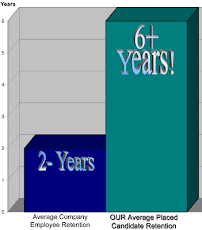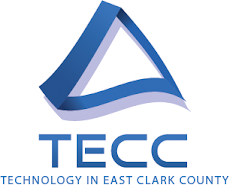
Why do some technology management teams survive recessions and others don’t, even while using the same methods?
According to Don Schmincke, author of High Altitude Leadership “ Mountain climbing teams in the “death zone”--that altitude above 26,000 feet where lack of oxygen makes long-term survival impossible--bear a striking resemblance to management teams. These teams live passionately while confronting challenging odds. Some are deeply humble; others are psychotic narcissists. They come with all levels of competence, from naive wannabes to elite athletes. And when put to the test, they react like all of us: sometimes like heroes, other times self-destructively.
At these extreme altitudes, success or failure is easily measured, and mistakes can kill people. In these elements, we’ve discovered that leaders who survive in the face of extreme challenges do something uniquely different than the rest. They succeed by recognizing and surviving specific dangers. Eight clear dangers emerge when an organization moves to higher levels of performance. Here’s an analysis of three of those dangers.
The Danger of Selfishness
At high altitude, selfishness kills people when teamwork is critically needed to handle injuries, equipment malfunction, limited resources, and weather threats. Similarly, selfishness can kill the change initiatives a business needs to survive recessionary times. Selfishness infects cultures when managers and staff:
• Let their career or personal agendas supersede the organization’s mission.
• Think that being right is more important than collaboration and dialogue.
• Take individual credit for achievements, while blaming others for failures.
• Are unwilling to compromise or seek consensus during conflict.
The damage escalates as new projects take too long to implement and staff talk about real issues outside of meetings instead of inside the meetings. Politicking, or maneuvering for personal gain, can bring down the best of companies. It’s often the driver of denial, avoidance, blindness, or cover-ups all of which are unacceptable in recessionary times.
High altitude leaders are driven not by selfishness, but by a zeal for achieving results. These leaders drive needed changes by inspiring others with a passion for what’s needed.
Is your culture driven by a passionate saga for the strategic changes ahead or do these missions end up as empty words on posters and coffee cups?
The Danger of “Tool Seduction”
In mountaineering, tool seduction endangers climbers every time they dress in the latest gear but apply the wrong techniques to the challenge. In their overconfidence (or naiveté) they can end up stranded on a storm-ravaged slope while experienced climbers relax at base camp and have a beer while watching the storm pass.
Similarly, the danger from a parade of expert consultants packing the latest tools can distract leaders from focusing on vital issues. Such tools can include methods for organizational change, leadership development, process improvement, teambuilding, CRM, ERM, TQM, Re-engineering, and other management methods.
Leaders fail to survive recessions when tools become “safe” answers, or worse, weapons to use against other tools. In critical moments, even the best tools break or fail, resources are lost, or circumstances change. The problem isn’t with what tools you need, but how organizations relate to the tools.
Are your leaders using the tools, or are the tools using your leaders?
Tool seduction can suck productivity and morale out of a corporate culture. It’s wiser to focus on changing the actions and decisions which truly drive high-performance results. During times of economic uncertainty, do your tools allow your company to change decisively, or just clog everyone’s shelves with interesting, but irrelevant, information? Do your tools fuel passion for change, or derail it with useless meetings, lingo, and processes?
The Danger of Cowardice
Cowardice stops both mountaineering and corporate teams from challenging the status quo, holding others accountable and exposing weaknesses. This danger happens as soon as your organization fears taking necessary risks or relinquishes core values during times of trouble. And it hinders decisive action by stopping the essential act necessary to survive a recession--telling the truth. Cowardice eats truth and lack of truth eats profit.
Telling the truth can upset people and cause discomfort, but ultimately it drives accountability to new levels. Keeping the truth at unspeakable levels only produces collateral damage, such as:
• Accumulating dead-weight of marginally performing employees
• Avoiding the real issues and thwarting meaningful change
• Sticking with doomed projects far too long
Selflessness, actions that drive performance and bravery are but a few of the survival tips for dealing with the leadership dangers encountered when taking your organization to a higher altitude. They can be especially important during times of economic uncertainty.”
Don Schmincke, Founder of The SAGA Institute, is a dynamic keynote speaker and co-author of High Altitude Leadership with Chris Warner. Visit www.HighAltitudeLeadership.com for a free team assessment exercise, and to view their remarkable strategic, leadership, and organizational change programs














No comments:
Post a Comment